Is there any RVer who has not ever planned a long vacation trip? And, when you want to pull off a modern Christopher McCandless (just don’t end up dead, okay?), you have to tow an RV with lots of cargo (because it’s tough to live on a backpack). Whether you are using a casual trailer or a popup camper, it’s not possible to do the heavy towing with a traditional receiver hitch. You will need either a gooseneck or a fifth-wheel hitch for that job. But, if there is a gooseneck vs 5th wheel comparison, which one will stand out?
You have to make a choice when selecting a hitch because it will affect your driving and comfort on the road. Each option has their own perks and caveats. So, you have to figure out which one suits the best for your requirements.
Contents
Gooseneck vs 5th Wheel: The Definitions
Both the hitches are better than a receiver hitch and allow a more efficient and central attachment to a large trailer to the pickup or SUV. The perfect alignment is better for hauling huge loads. Let’s check the discussion about gooseneck vs 5th wheel hitches to see what could be the best choice for tugging serious cargo.
Both hitch types are designed for pickup truck bed. They are able to haul large loads (from 10,000 to 30,000 pounds) without disrupting the stability of the vehicle. Other hitches are connected to the vehicle back but these are attached to the truck bed, which make them better for making sharp turns and cutting tight corners.
To go deeper into the gooseneck vs fifth wheel discussion, it’s necessary to understand the definition and working mechanism of both types.
Gooseneck Hitch
A gooseneck hitch has a metal plate installed directly under or on the vehicle box. There are couplers and a ball to create the connection between the trailer and the towing truck. They come with a safety chain to ensure that the trailer does not detach from the pickup even when the hitch fails. However, these are mostly used for tugging horse trailer and toy hauler. Most states in the United States don’t approve the use of gooseneck hitch for trailers used for traveling and RV camping.
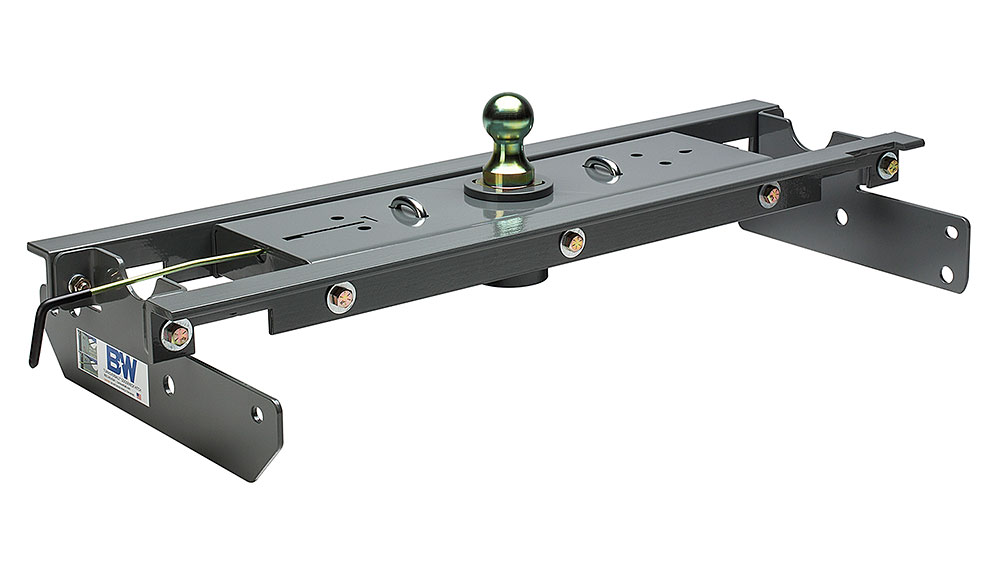
Three types of gooseneck hitches are:
- Below Bed – As the name suggests, the rails will be under the truck bed and will provide complete access when the hitch is removed. There will be no exposed rails, and the mounting and removal of the hitch will be quick and easy. These are more in demand nowadays because they are open to tailor-made fitting.
- Above the Bed – It connects to the truck bed just like a 5th wheel hitch. You can install and remove the hitch whenever you want and without any trouble. As they use the same set of rails as a fifth wheel, you can use them for both gooseneck and fifth wheel trailers.
- Fold Down – These are almost similar to the Below Bed version with the additional perk of being able to fold the ball to the side under the truck bed. However, the mounting needs cutting a hole in the truck bed.
Video: How to hook up a gooseneck trailer
5th Wheel Hitch
The installation of a fifth wheel hitch requires the mounting of two steel rails followed by a customizable hitch on the bed of the truck. The hitch is a flat, big plate that looks like a horseshoe.
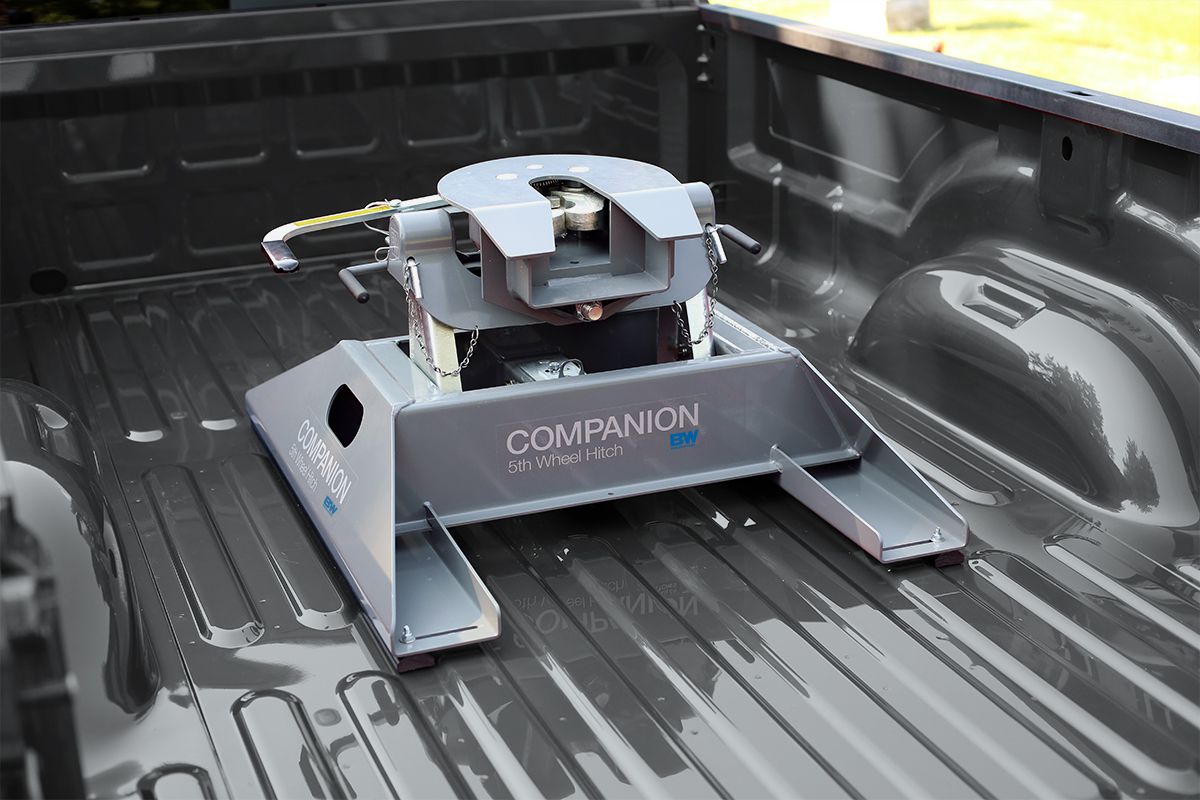
The hitch gets attached to the trailer via a King Pin facing downward along with a plate that sits on top of the hitch plate. The King Pin makes the connection secure by getting locked within the hitch but can rotate during turns. The metal rails stay under the hitch and they are connected to the pickup to increase the strength of the connection. You will need to keep the plates (of the trailer and the hitch) lubricated because they constantly rub against each other when you drive the trailer.
Fifth wheel hitches are popular choices for pulling RVs and camping trailers.
Video: How to hook up a fifth wheel
Differences between Gooseneck and Fifth Wheel
You will better understand the gooseneck vs 5th wheel comparison after looking at this chart:
| GOOSENECK HITCH | FIFTH WHEEL HITCH | |
| Working Mechanism | It establishes the connection to the trailer with a ball and a coupler. | It utilizes a King Pin that gets locked into a King Pin funnel and established the linking. |
| Types | They come in three distinct types – Under Bed, Above Bed, and Fold Down. These are flexible and you can dismount them quickly when not in use. | There is no variation of 5th wheel hitches. |
| The weight of the Trailer | A gooseneck hitch is stronger than a fifth wheel hitch. It can tow more weight, so you can use it for pulling a huge trailer (25,000 to 30,000 lbs) | Fifth wheels are also compatible with large trailers, but their towing ability is lower than the gooseneck hitches. |
| Applications | It is suitable for hauling trailers that carry only goods, not human beings. | It is used for dragging RVs that carry people. In fact, many states allow only fifth wheel hitches for trailers carrying passengers. |
| Storage | It won’t take much space in the truck box storage. So, if you want to carry goods, you should install a gooseneck hitch. | A fifth wheel takes much space in the truck box. As a result, there is not much room left for putting your stuff on the truck bed. |
| Cost | Price is an important issue when the budget is a factor. A gooseneck is less expensive than a fifth wheel. | A fifth wheel hitch is expensive. But, you can’t use a gooseneck for hauling a camping trailer. Sure, there are other alternatives but these two hitch types are the best for large campers. |
The Final Words
The gooseneck vs 5th wheel comparison gives the impression that both are good choices for large and bulky trailers. They reduce the vehicle’s sway on the road and bring stability to the ride. They are the best options for hauling bulky RVs. However, you have to choose the fifth wheel if you plan to stay in the trailer. But, a gooseneck is fine if you want to use the vehicle only for carrying cargo.
Last Updated on November 21, 2019
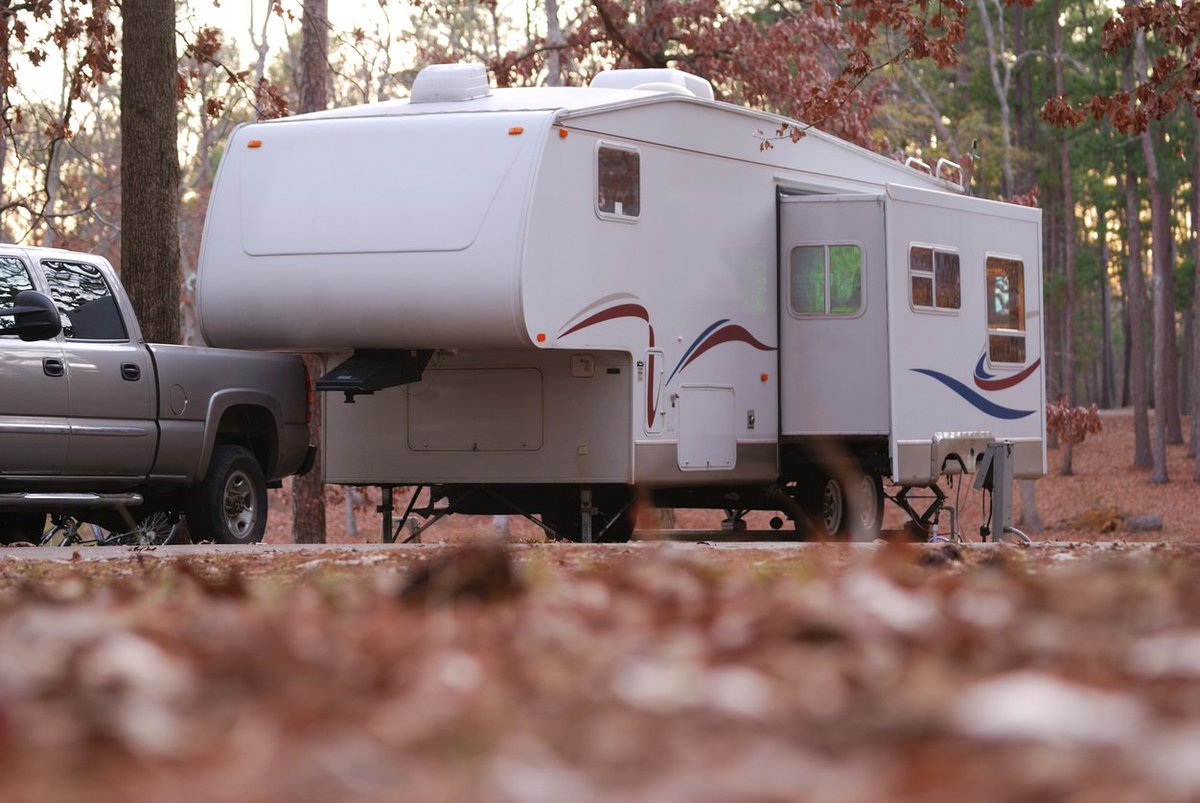


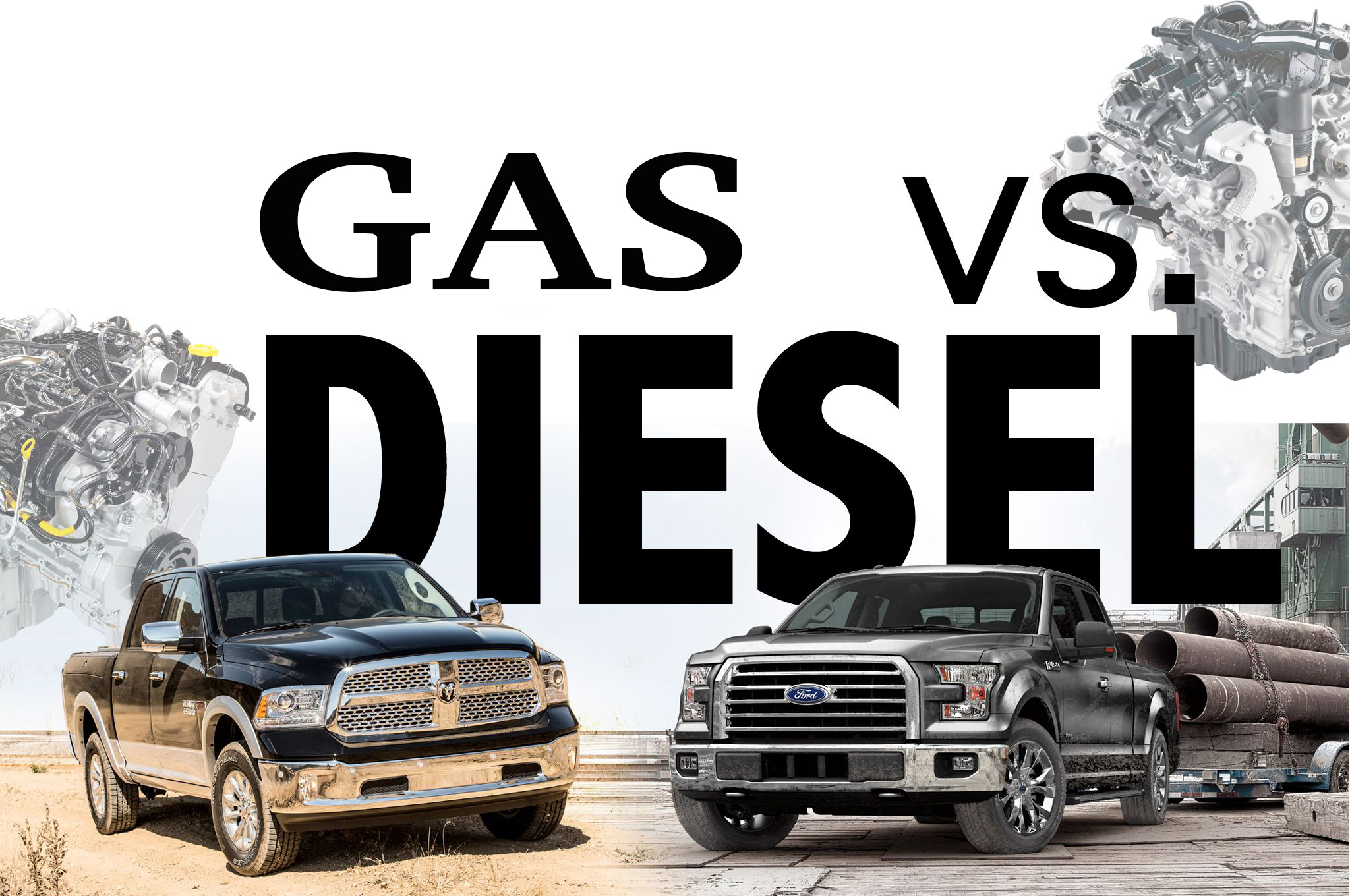
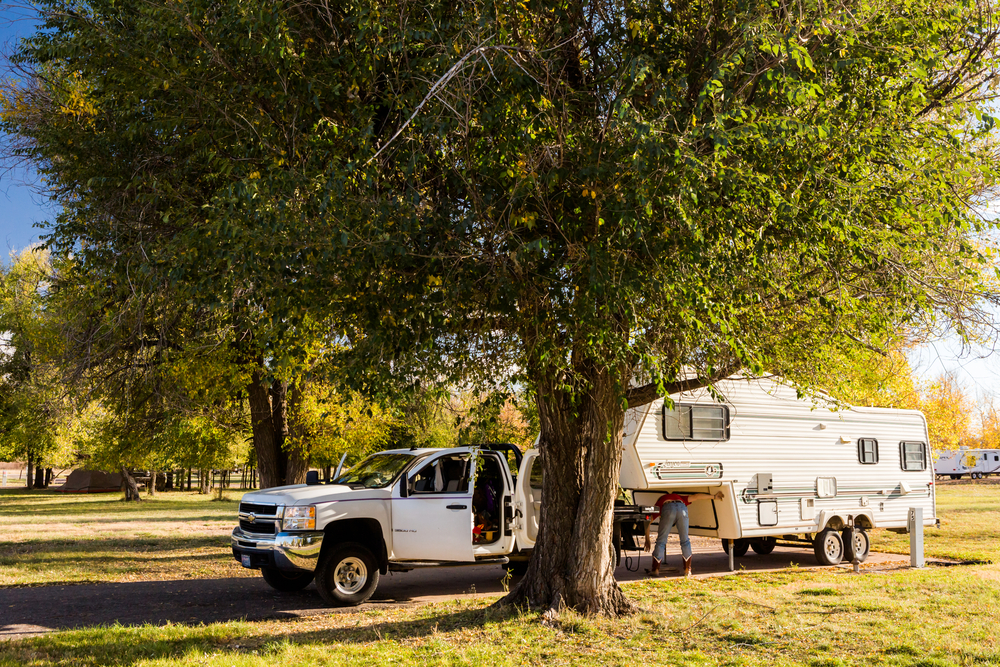
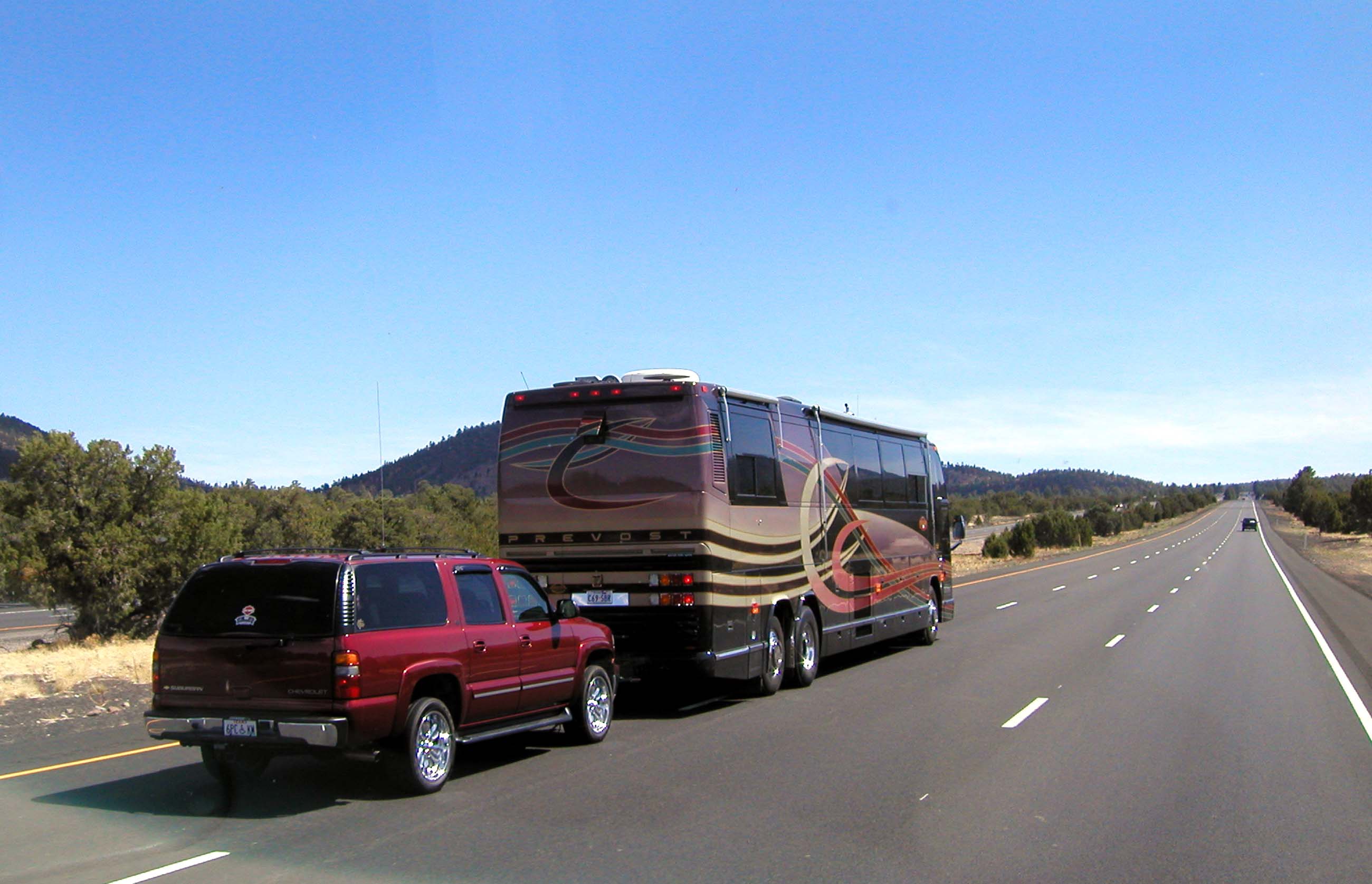
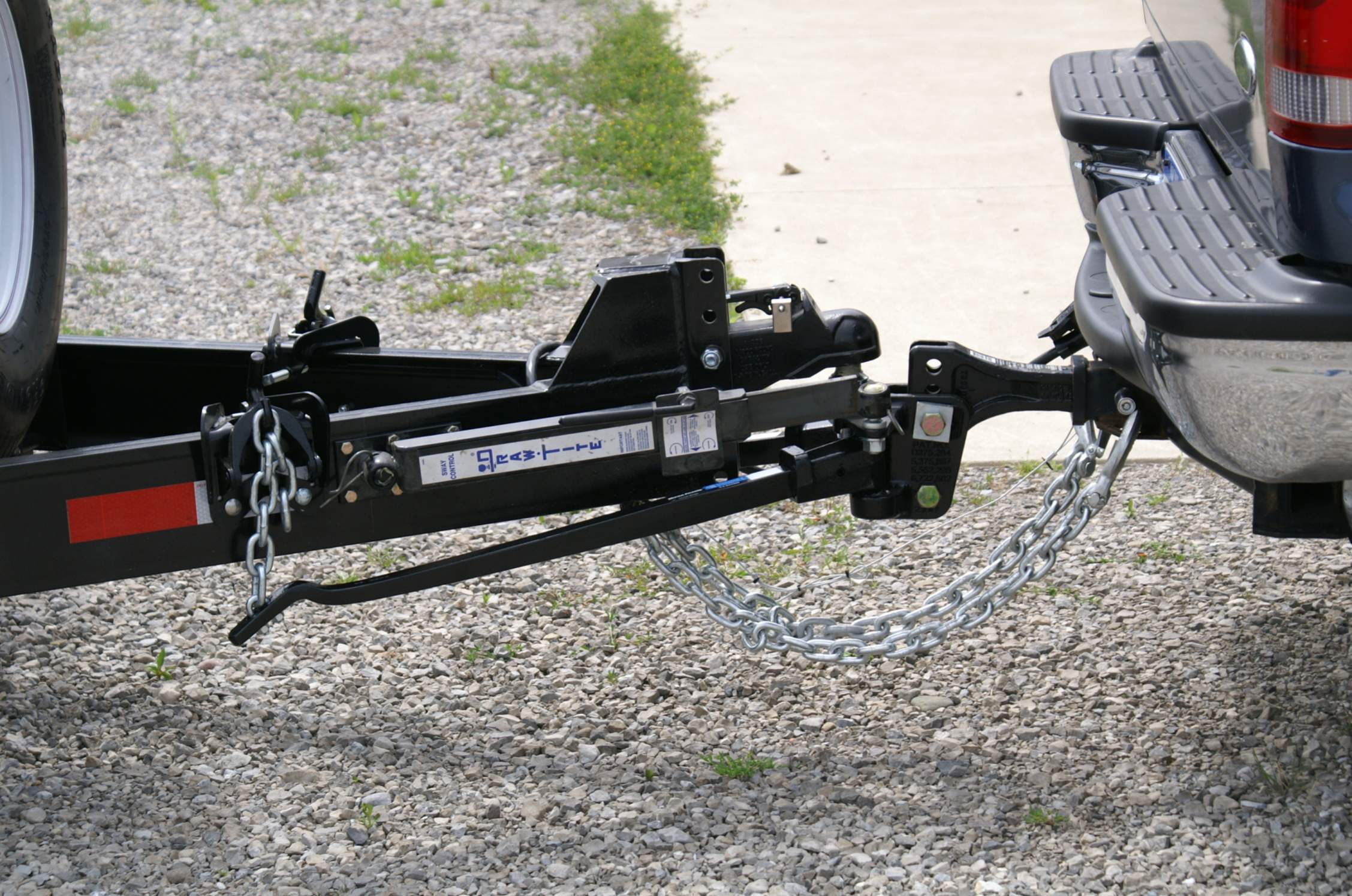
You may not be aware of this, but the 5th wheel king pin is compatible with semi over the road trucks. I have seen RV 5th wheels being pulled by over the road freight tractors.
My husband and I recently got a horse and we want to take her to a few different pastures and ranches this year, so we need to find a quality trailer hitch. You make a great point that a gooseneck hitch includes a safety chain so that the trailer won’t detach even if the hitch falls. This would definitely give me peace of mind that our horse would be safe riding in the trailer with this type of hitch!
It got me when you said that a gooseneck hitch can tow up to 30,000 lbs which makes it a stronger choice. With that in mind, I will be picking this for the hitch we need for the RV. This is because the RV we have is good for at least 10 people, so it is really huge and heavy plus with our things.
A question I have is does the 5th wheel or goose neck tow better as far as sway and braking? Is there a noticeable difference?